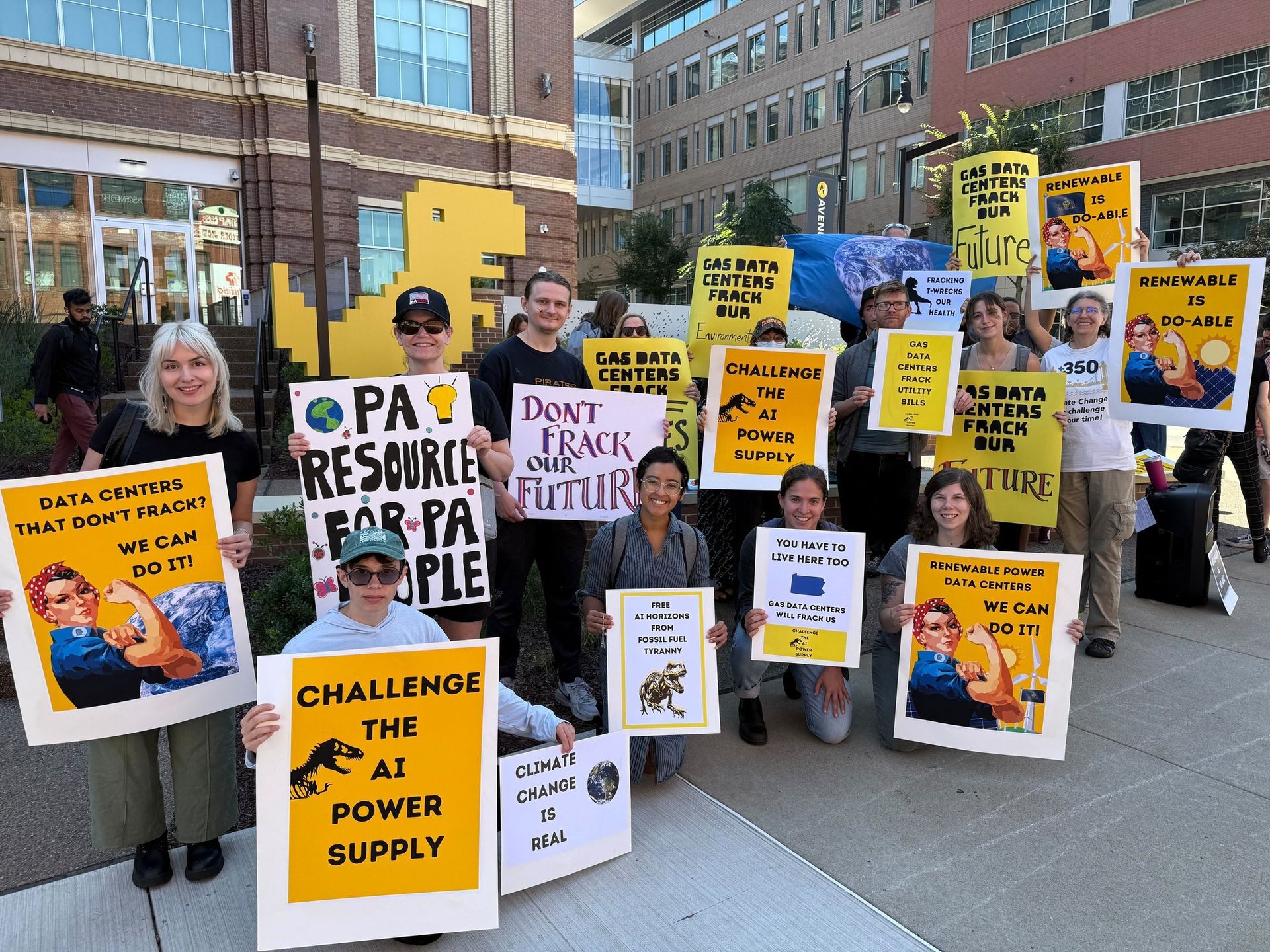AI Avenue Protest
trcf marketing • October 15, 2025

On September 11, I had the opportunity to attend an environmental action and press conference put on by Protect Penn Trafford, “an organization dedicated to ensuring residents' safety, security, and quality of life by engaging in education and advocacy to protect the economic, environmental, and legal rights of the people in Westmoreland and Allegheny counties.” This action took place in opposition to an Artificial Intelligence (AI) Horizons conference that was occurring on the newly coined “AI Avenue.” AI Avenue is a one mile zone that stretches from Bakery Square to Duolingo Headquarters in East Liberty. The city of Pittsburgh, with support from city and state legislators, is looking to develop AI Avenue into an AI hub - an area where AI companies can headquarter themselves to develop and expand various AI software.
Nationally, Western Pennsylvania has been recognized as a new frontier in artificial intelligence. However, this new frontier comes with a price to pay for the constituents of the Southwestern Pennsylvania region. Pittsburgh and the surrounding areas have been ravaged by pollutant industries, like the steel industry, throughout history. The new AI boom would be no different. The supercomputer software of AI is housed in what are called data centers. These data centers are highly specialized facilities that complete the demands of AI. These data centers also use an absurd amount of electricity. According to MIT, within the next year, AI alone is expected to use enough electricity equivalent to 22% of all US households.
Now, what does this development mean in terms of tangible effects? The result for local citizens is higher electric bills, higher water usage, and more pollutants in the surrounding area. An area that has already seen an immense amount of fracking and water pollutants would see a significant rise come the development of these data centers. Within the data centers, supercomputer servers get extremely hot with upticks in usage. To sustain the operations of AI, water is typically hauled from local watersheds to cool these servers through a cooling radiator system. Local environmental organizations are extremely concerned about the implications of this process for our local watersheds here in Pittsburgh.
Aside from the watersheds, AI also requires an immense amount of fossil fuel energy. To ensure that these data centers have the fuel they need to operate at optimal speed, fuel needs to be available around the clock. Development of data centers has consequentially led to an expansion of natural gas production via hydraulic fracturing, or fracking. Southwestern Pennsylvania has already been the victim of fracking efforts. Many local residents and organizations over the years have raised concerns regarding petrochemical spillages, pollution of private water supplies, pollution of the soil, and pollution of the air. The environmental effects of fracking have been linked to various cancers, respiratory issues, and other health issues. While there have been small victories in the fight for environmental justice against fossil fuel efforts in Southwestern Pennsylvania, it is clear that the development of Pittsburgh as an AI hub would exponentially grow the fossil fuel industry in the region. Many environmental groups have not simply been rallying against AI, they’ve been rallying for legislators and developers to consider greener, renewable energy. The next action by Protect Penn Trafford is scheduled to take place on October 16, 2025, at 9:15 a.m. at the Hilton Garden Inn in Pittsburgh/Southpointe
(located in Washington County).
My name is Maddie Morelli and I am in my final year of the BASW program at the University of Pittsburgh. For the 2025-26 school year, I will be interning at Three Rivers Community Foundation. I am extremely excited to learn from all the wonderful people at TRCF, as well as learn from the people in the community.

